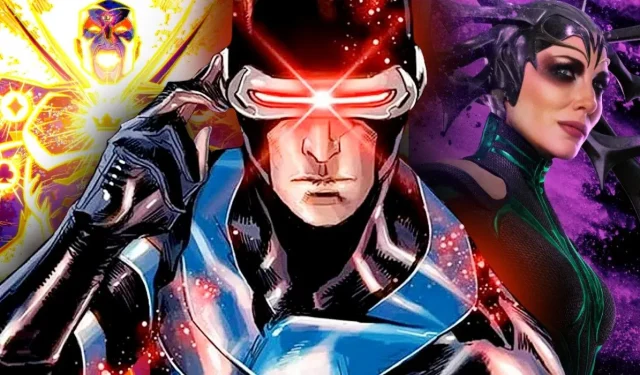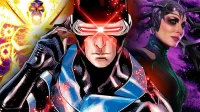Marvel’s X-Men universe is filled with extraordinary characters boasting a wide array of powers, from manipulating the weather to reshaping reality itself. These remarkable abilities inevitably catch the attention of deities within the Marvel cosmos, many of whom consider the mutants a threat to their supremacy. Over the years, the X-Men have encountered powerful dark gods, disloyal Asgardians, and cosmic entities, while sometimes collaborating with various earthbound gods and god-like figures.
In this article, we spotlight the 15 most formidable gods in X-Men history. While all deities across the Marvel universe coexist within the same narrative framework as the X-Men, our focus is on those who have consistently appeared in mutant lore or who have significantly influenced the storylines and powers of key X-Men characters.
15. Hrimhari
An Asgardian God Who Fell for an X-Men Hero
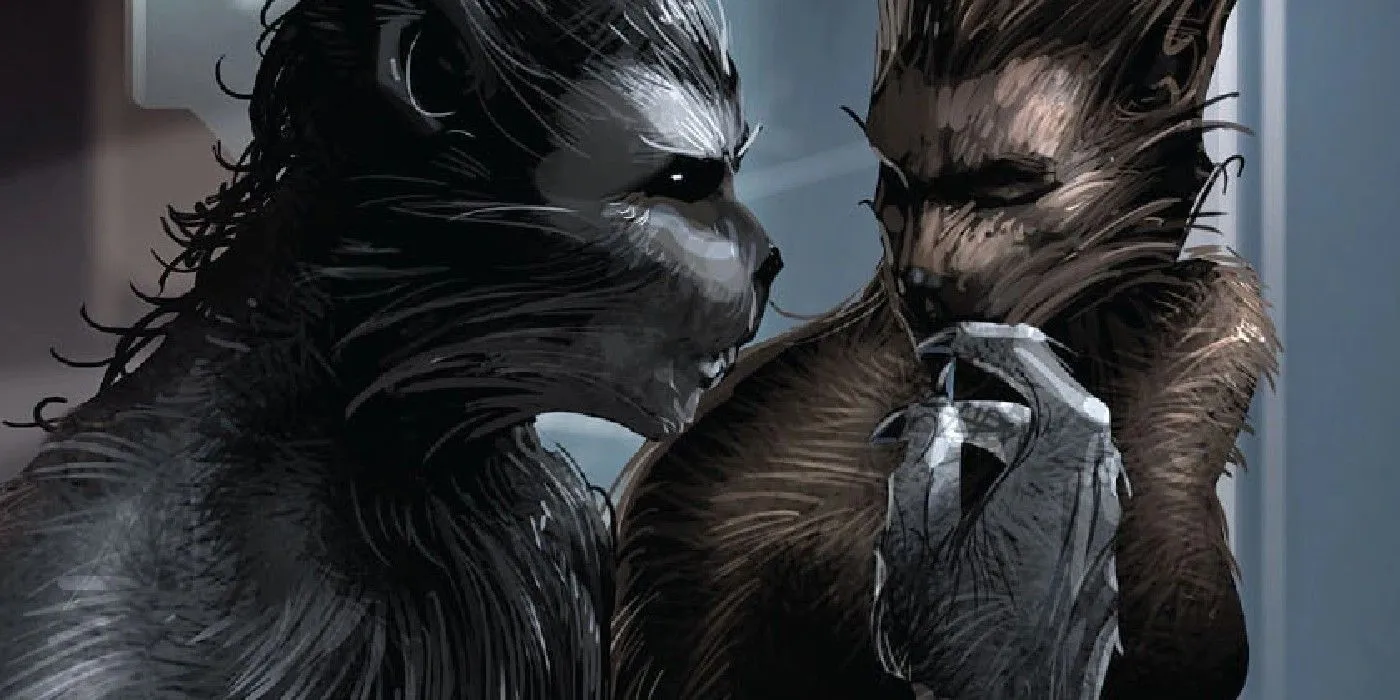
Hrimhari, a Wolf God of Asgardian legend and a descendant of Fenris, stands out as a noble warrior. He famously fell in love with Rahne Sinclair, also known as Wolfsbane, a member of the New Mutants and X-Force, leading to the birth of their son, Tier. Though deceased, Hrimhari has found ways to return to interact with Wolfsbane. Possessing immense strength, durability, enhanced senses, and a healing factor, he remains one of the more notable deities in mutant lore.
14. Kierrok the Damned and the N’Garai
The X-Men Can’t Escape This Army of Dark Gods
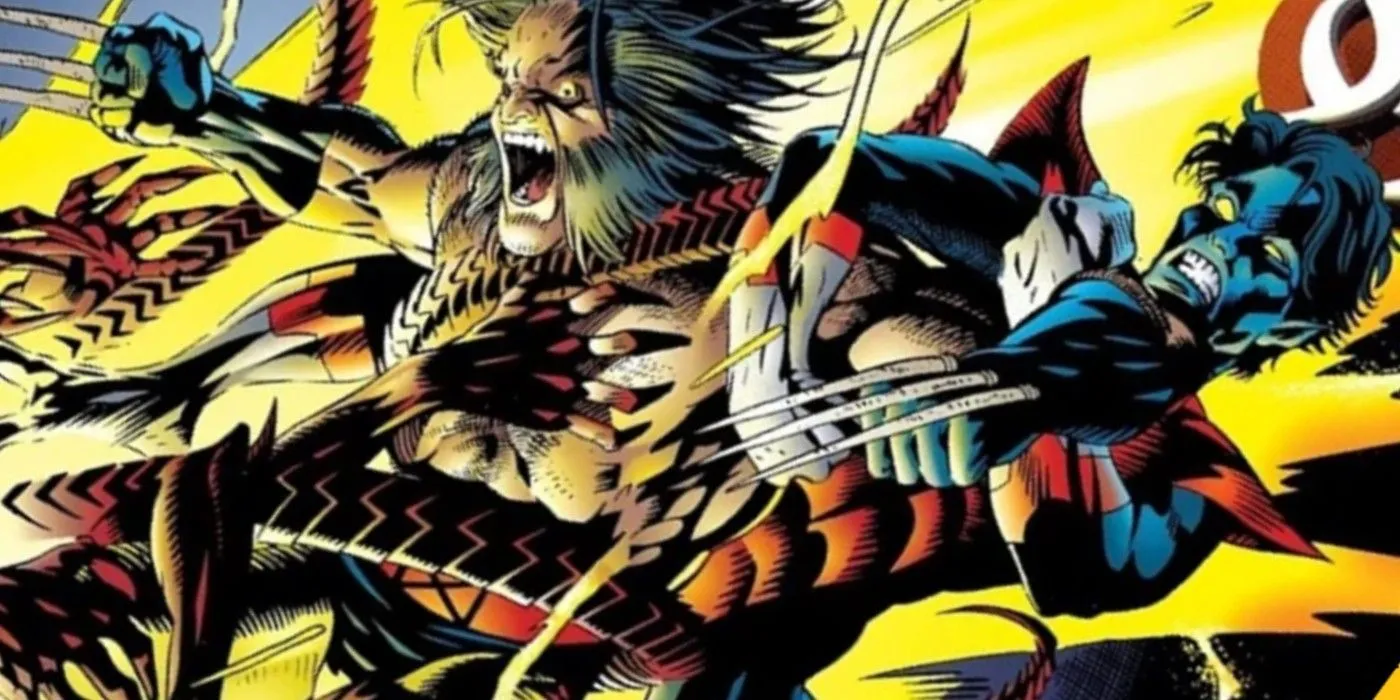
The N’Garai are among the oldest entities in Marvel, having been created by the Elder God Chthon and ruled by their deities, the Mabdhara. The presence of a mystical Cairn located on Xavier’s School grounds has frequently drawn the X-Men into conflict with the N’Garai. Iconic battles have been fought by Wolverine and Kitty Pryde, with Kierrok the Damned serving as a major antagonist due to his ability to absorb the life energy from mortals.
13. Hope Summers and Exodus
The ‘Mutant Messiah’ Isn’t as Frightening as Her Priest
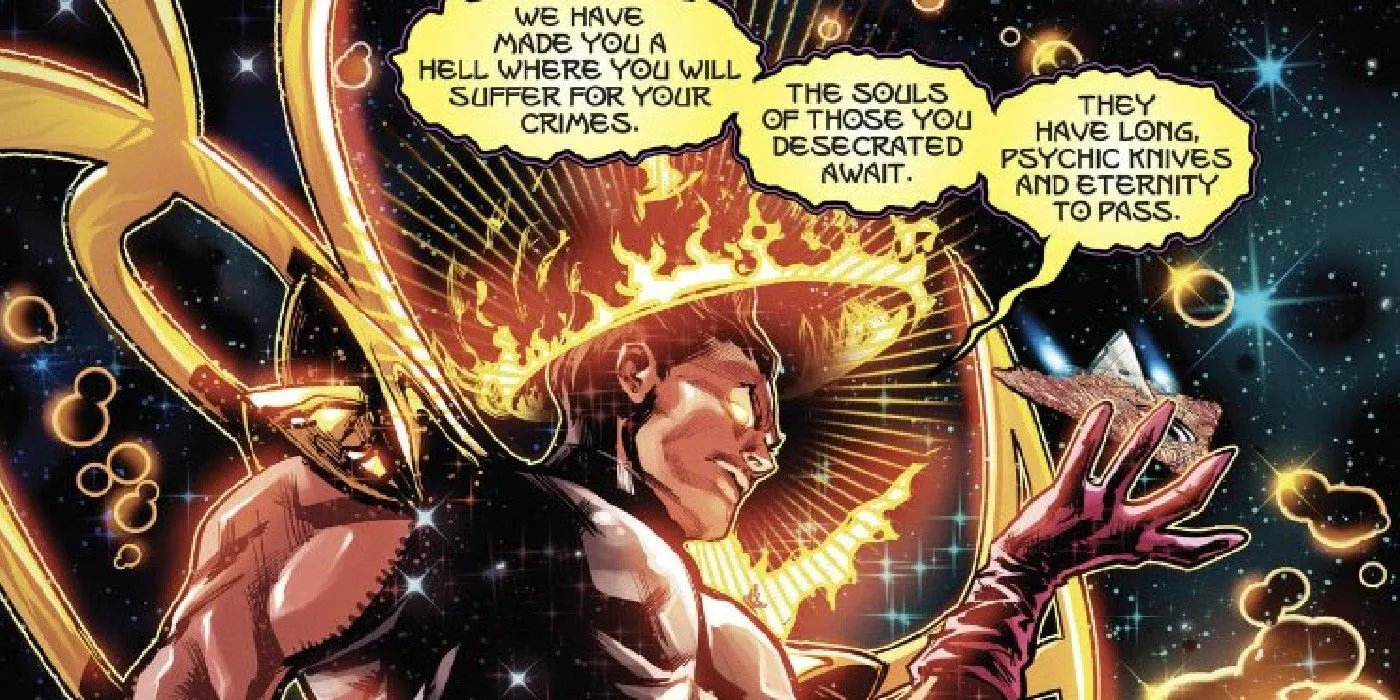
The ‘Decimation’ orchestrated by the Scarlet Witch left the mutant population in turmoil until Hope Summers emerged—an entity thought to be the reincarnation initiated by the Phoenix Force to rejuvenate the X-gene. While Hope does not view herself as a deity, Exodus, her devoted follower, does. Once a Crusader, he has twisted religious teachings to position Apocalypse as evil and Hope as the beacon of hope for mutants. Exodus derives power from the faith and belief his followers exude.
12. Tumult
The Mutants of Arakko Strike Fear in Even Their Gods
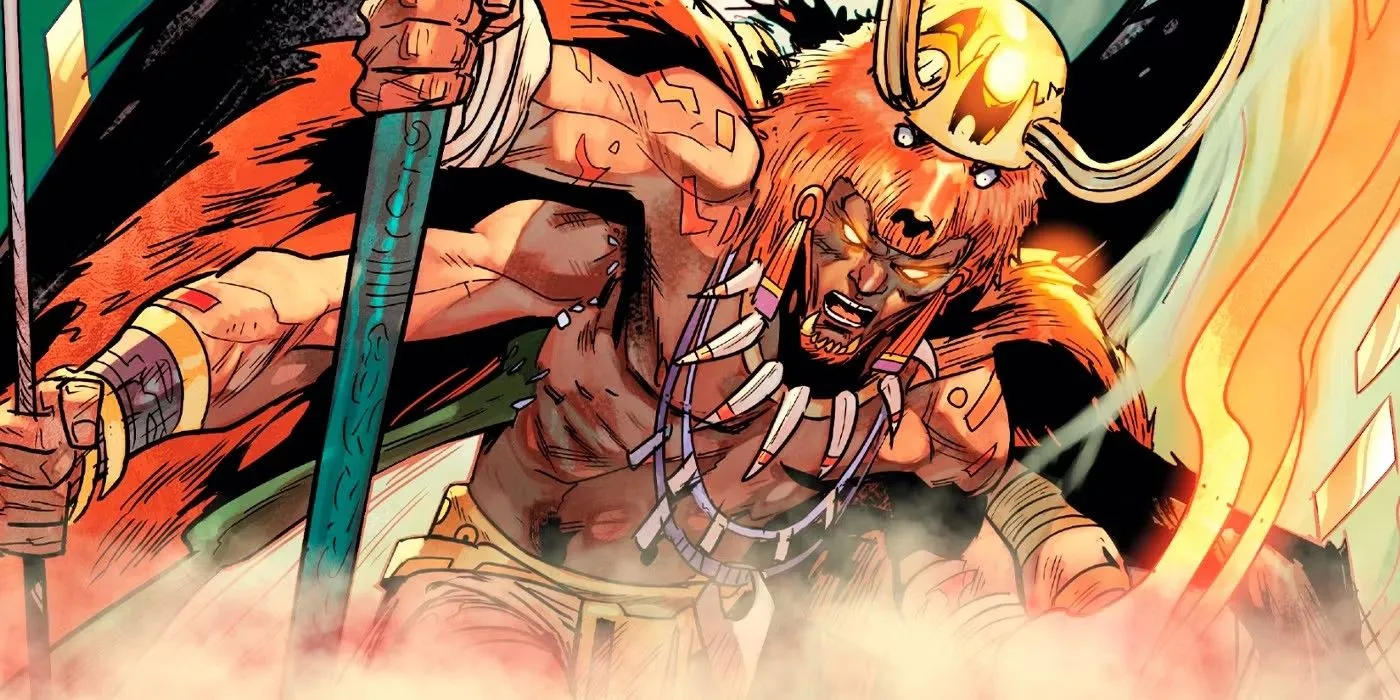
11. Storm, aka Ororo Munroe
Storm Transforms from Mutant Hero to Cosmic Goddess
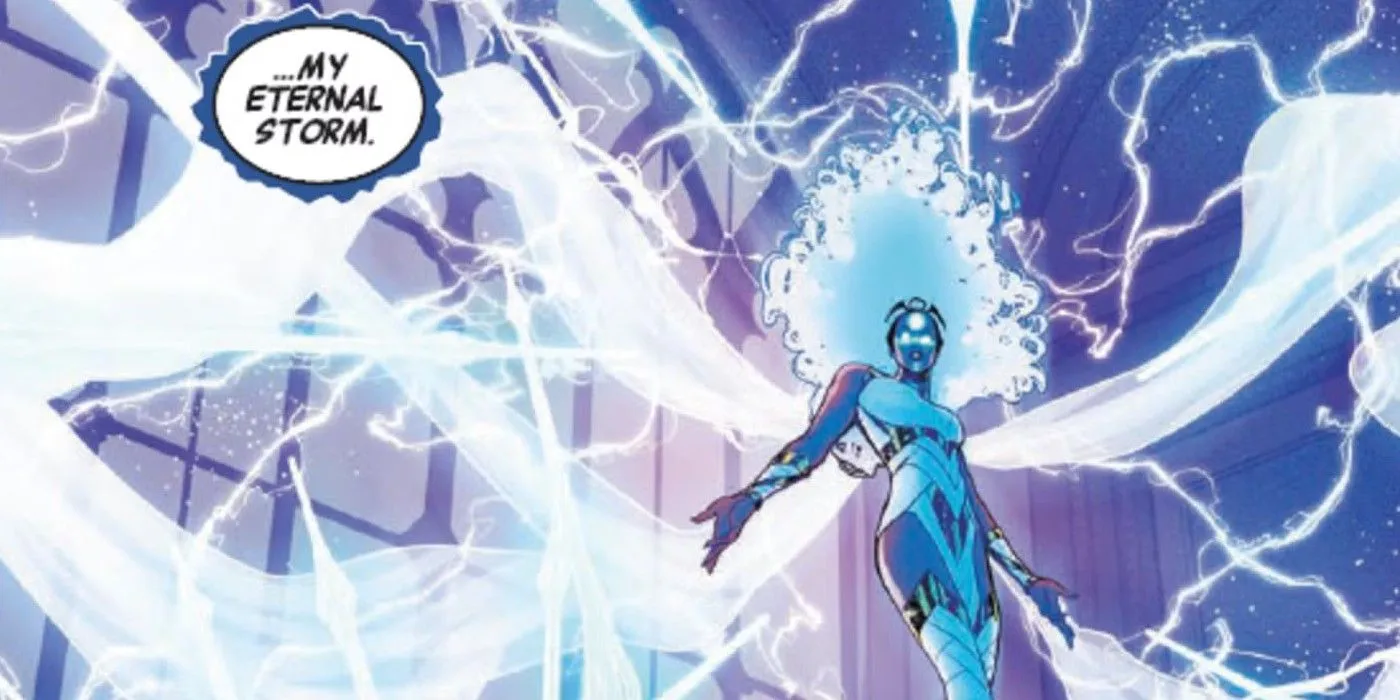
Once regarded as an Omega-level mutant, Storm has ascended to godhood thanks to her mastery of the weather and her ancient lineage. Her worship by various African groups has been long-standing, and she has recently claimed the title of Eternal Storm, formally establishing her divine status in the narrative. Notable interactions, such as Thor inviting her to join the Avengers, further solidify her cosmic importance, alongside her rare ability to wield Mjolnir, Thor’s hammer, showcasing that she possesses the qualities of a true deity.
10. The Morrigan
The Goddess of Death Takes Offense to Ultimate Mutant Powers
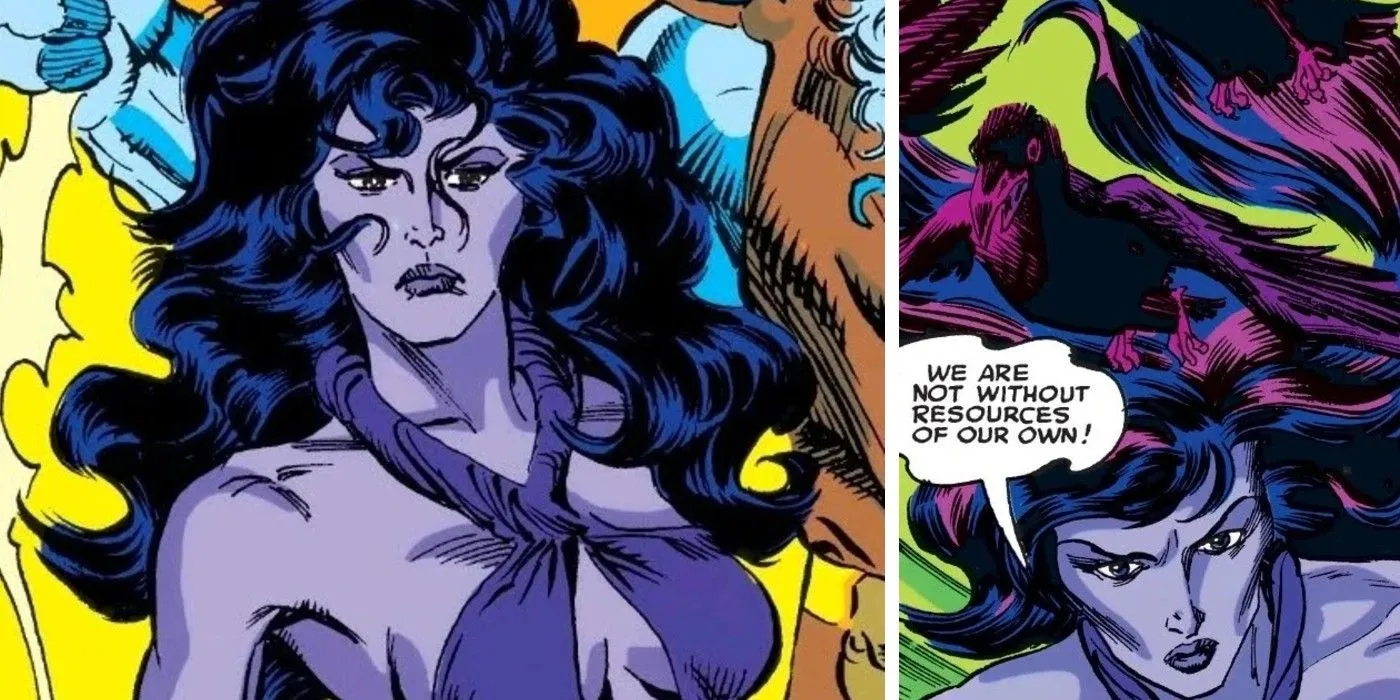
Morrigan, the Celtic goddess of death and battle, has long been a formidable adversary of the X-Factor team, particularly targeting Theresa Cassidy, also known as Siryn. Although she briefly aligned with the X-Men by using Banshee as her host, she has returned with a vengeance during the Krakoan Era, upset by the mutants’ ability to defy death through resurrection technologies. Morrigan turned Siryn into a weapon against her own team, although Shatterstar eventually saved her. Her return is anticipated as a constant threat.
9. Cyttorak
Juggernaut’s Patron: A Dark God of Chaos and Destruction
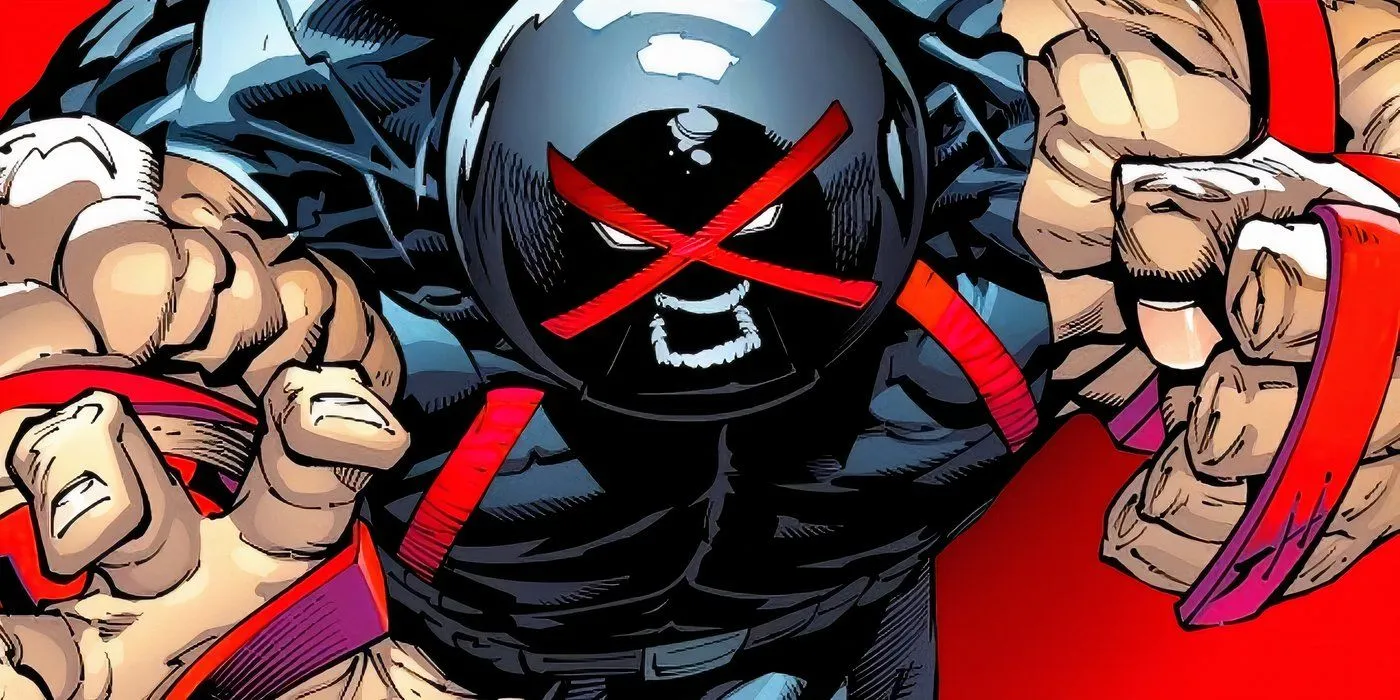
Cyttorak, the dark god governing the Crimson Cosmos, designates avatars on Earth to enact chaos and destruction, thereby fueling his power. The most recognized avatars, Cain Marko (Juggernaut) and the more heroic Colossus, have made notable impacts in the X-Men saga. Recently, Cyttorak showcased a rare form of empathy, sacrificing himself to contain a disease threatening Earth in The Amazing Spider-Man #70 (Joe Kelly and Ed McGuinness).
8. Loki Laufeyson
The God of Mischief: Transforming Iconic X-Men
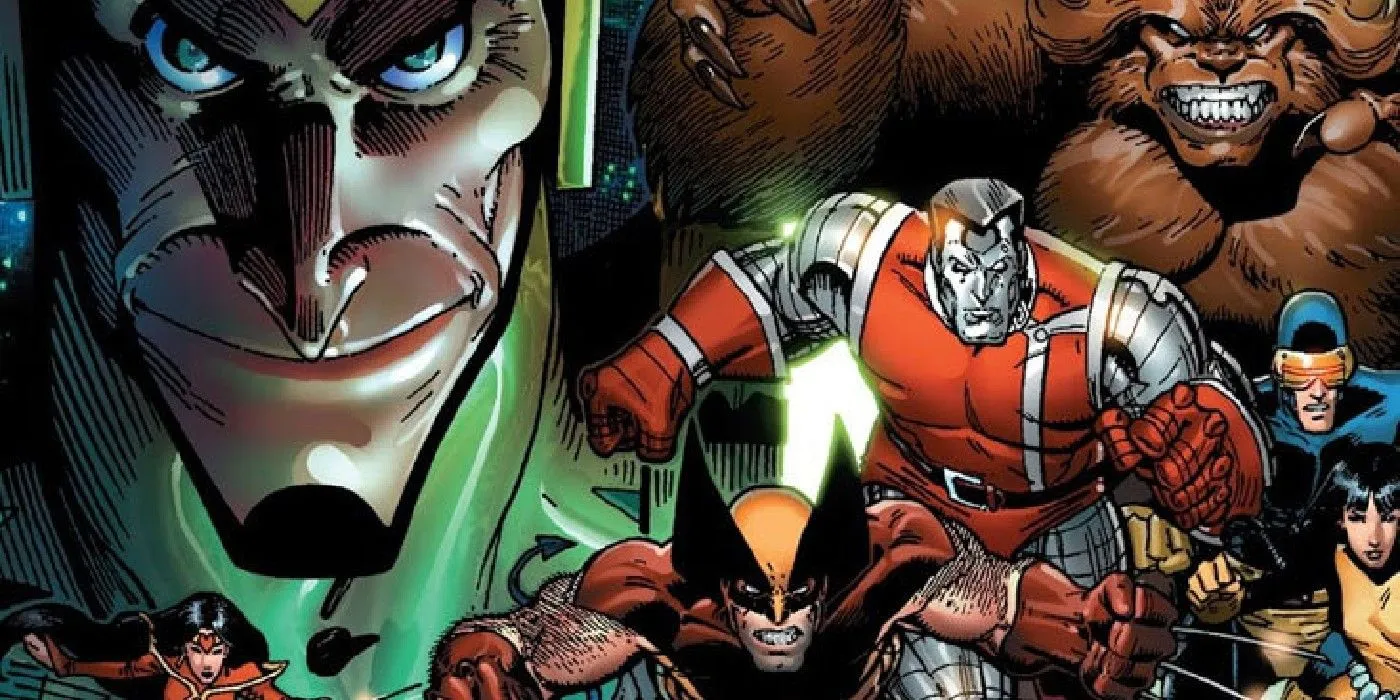
Although Loki primarily features in Thor-related narratives, his interactions with the X-Men have led to pivotal changes. In X-Factor #15 (Louise Simonson and Walter Simonson), Loki enhanced Iceman’s powers, propelling him toward Omega-status. Additionally, Loki aided Storm in her quest for Mjolnir, establishing a connection between the X-Men and Thor, who soon requested her to wield the hammer on several occasions.
7. Hela
Asgard’s Goddess of Death, a Major Threat to the New Mutants
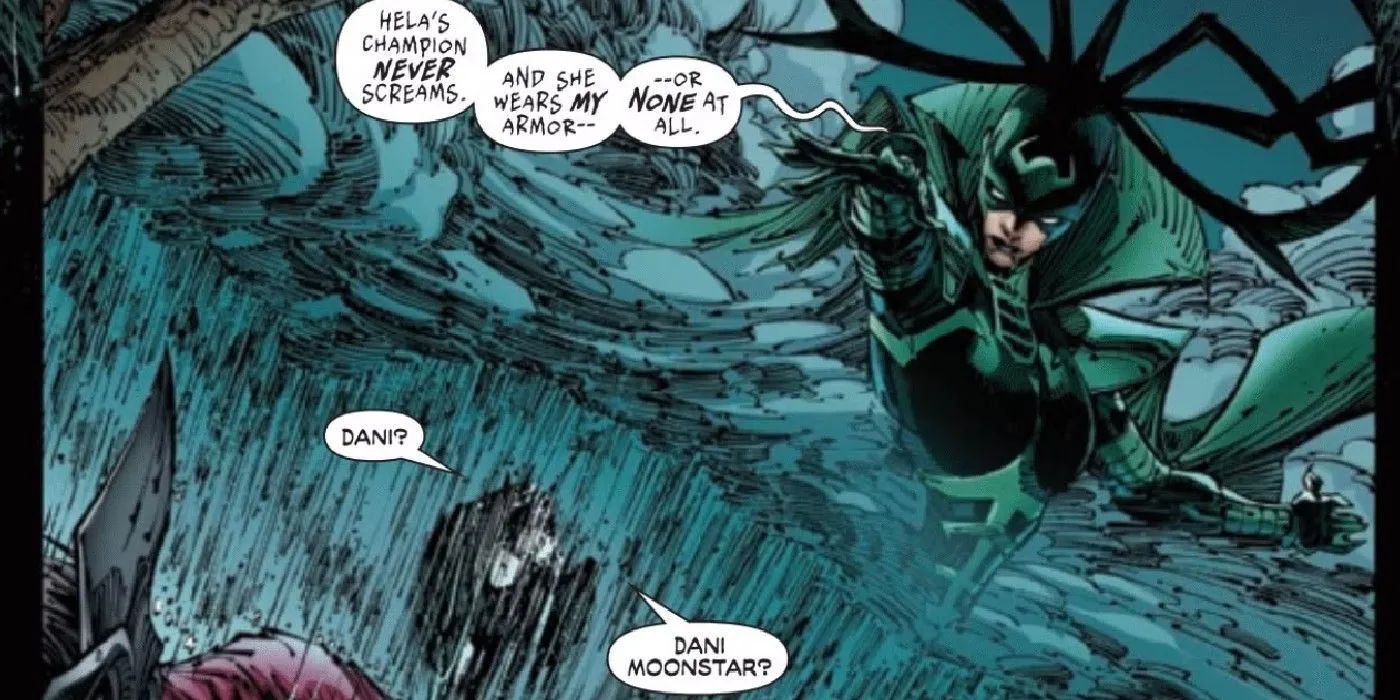
As the goddess of death, Hela has been a fierce opponent to the X-Men, particularly targeting the X-Factor team. She previously sought their assistance to capture Pip the Troll. Hela has demonstrated immense power, enhancing the abilities of heroes like Darwin, who ascended to godlike status to fend off her lethal touch. She also empowered Dani Moonstar as a Valkyrie, pushing multiple characters to their extremes.
6. Celestials
The Celestials: Source of the Mutant Gene
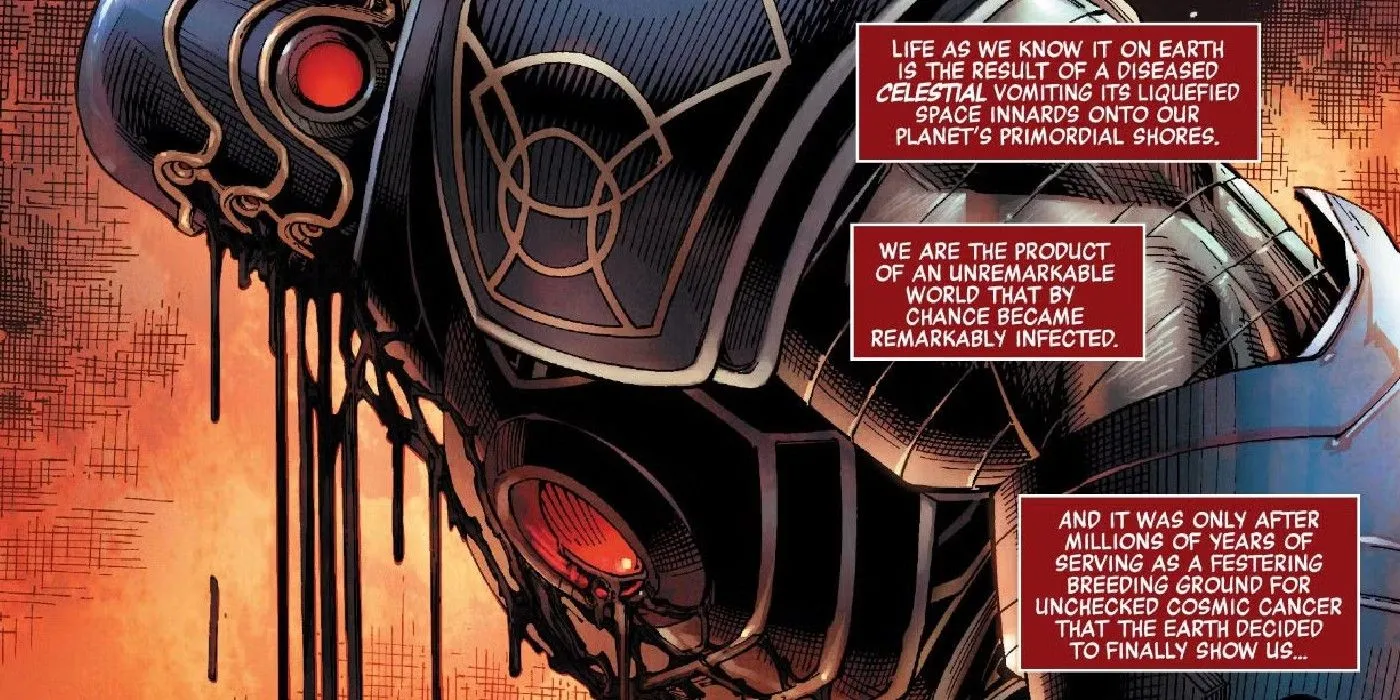
The Celestials are a pivotal force within Marvel’s cosmic hierarchy, having influenced evolution across the universe, most notably through the death of a Celestial known as the Progenitor on Earth. This event infused the planet with unique energies that ultimately spurred the emergence of mutants, also giving rise to the X-gene. Recent events, including AXE: Judgment Day, highlighted their essential role in X-Men lore, as well as their history of confrontation with the mutant heroes.
5. Mutantkind (According to the Order of X)
A Cult That Deified Mutants
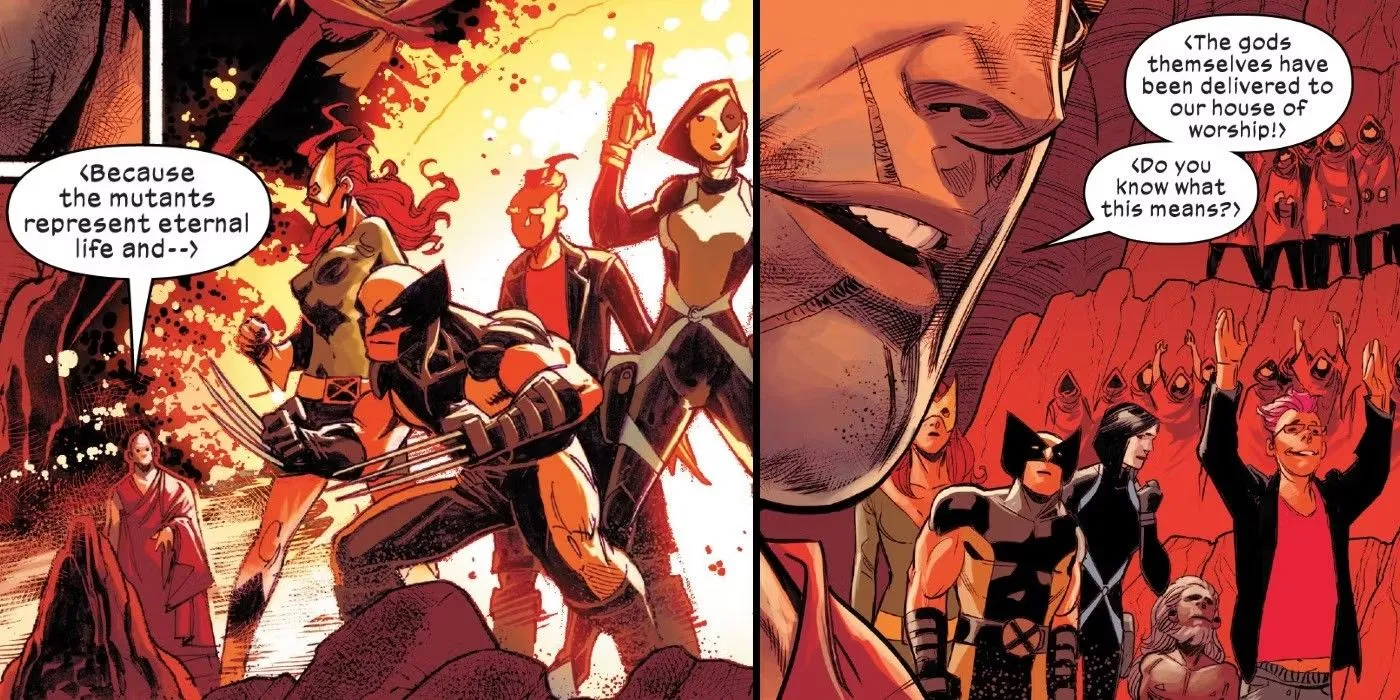
In Wolverine Volume 7, we are introduced to the Order of X, a cult that reveres mutants as divine beings. This cult emerged in the wake of the mutants’ resurrection abilities, with its members notably attempting to kidnap mutant infants to share in their undying existence. Despite their malign motives, the cult acknowledged various mutants, such as the reality-warping Nate Grey and Legion, as their godly figures, underlining the blurring lines between heroes and deities.
4. The Dark Pantheon
A Coalition of Evil Gods
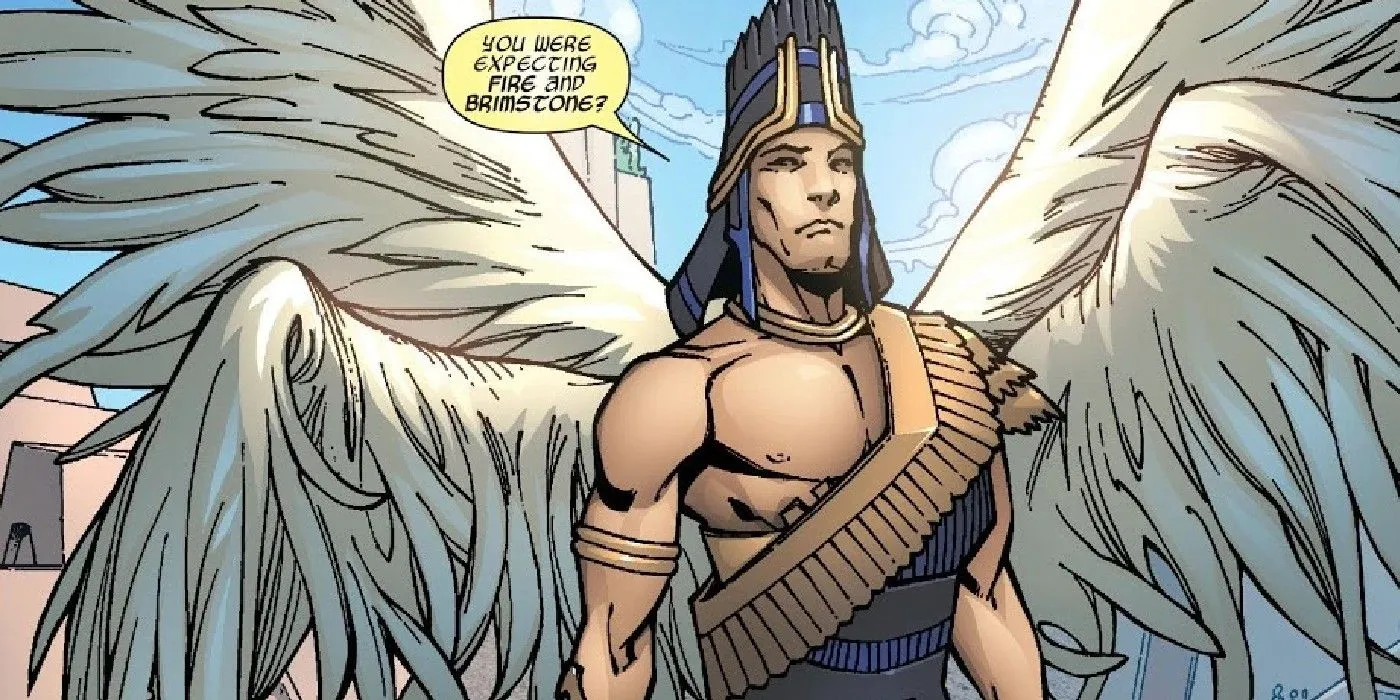
The X-Men have encountered numerous malevolent deities over the years, ranging from the nefarious Annihilation to the chaos incarnate known as the Adversary. Recent revelations have illustrated that these dark gods are interconnected, forming a twisted pantheon serving a single cosmic evil opposing the Phoenix Force. Below is a breakdown of this enigmatic group:
| X-Men’s Dark God Pantheon | |||||
|---|---|---|---|---|---|
| Name | Appearance | Powers/Purpose | First Appearance | Creators | |
| Bête Noir | An ancient nemesis of the Phoenix Force. | Gambit & Bishop: Alpha #1 | Scott Lobdell, Joe Pruett & Cary Nord | ||
| The Adversary/Sefako the Twice-Risen God | 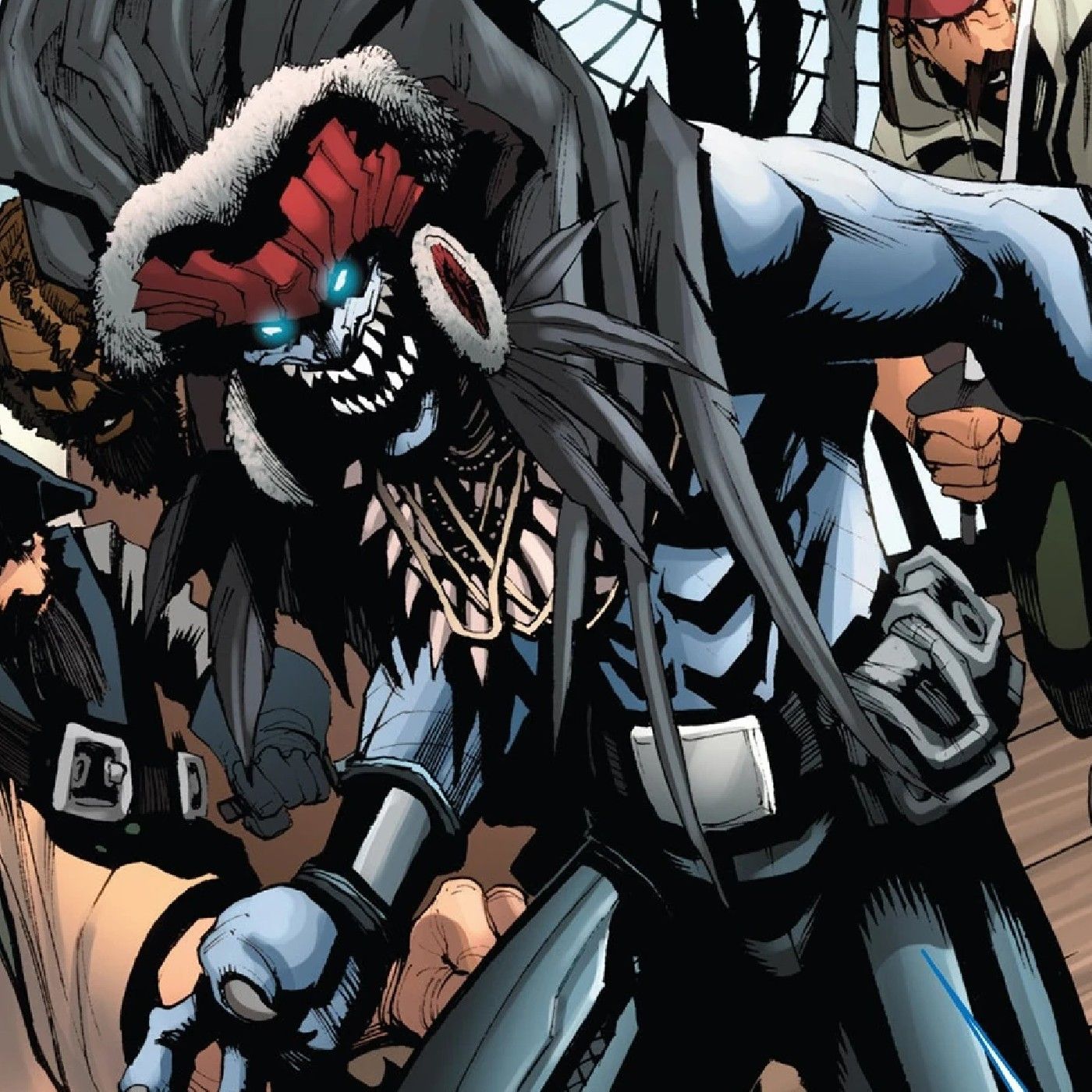 |
A cosmic force of chaos that delights in manipulating mortals. | Uncanny X-Men #188 | Chris Claremont & John Romita, Jr. | |
| Shadow King | A powerful psionic entity that prefers to inhabit telepaths. | X-Men #117 | Chris Claremont & John Byrne | ||
| Annihilation | A dark god inhabiting a golden mask; whoever wears it rules. | Free Comic Book Day: X-Men #1 | Jonathan Hickman, Pepe Larraz & Leinil Francis Yu | ||
| First Fallen | An ancient being bent on stasis who possesses others. | Uncanny X-Men #473 | Chris Claremont, Tony Bedard & Roger Cruz | ||
| The Goblin Force | A counterpart to the Phoenix Force that consumes galaxies. | Mutant X #1 | Howard Mackie & Tom Raney | ||
3. The Phoenix Force, Merged with Jean Grey
The Pinnacle of Creation in Marvel Lore
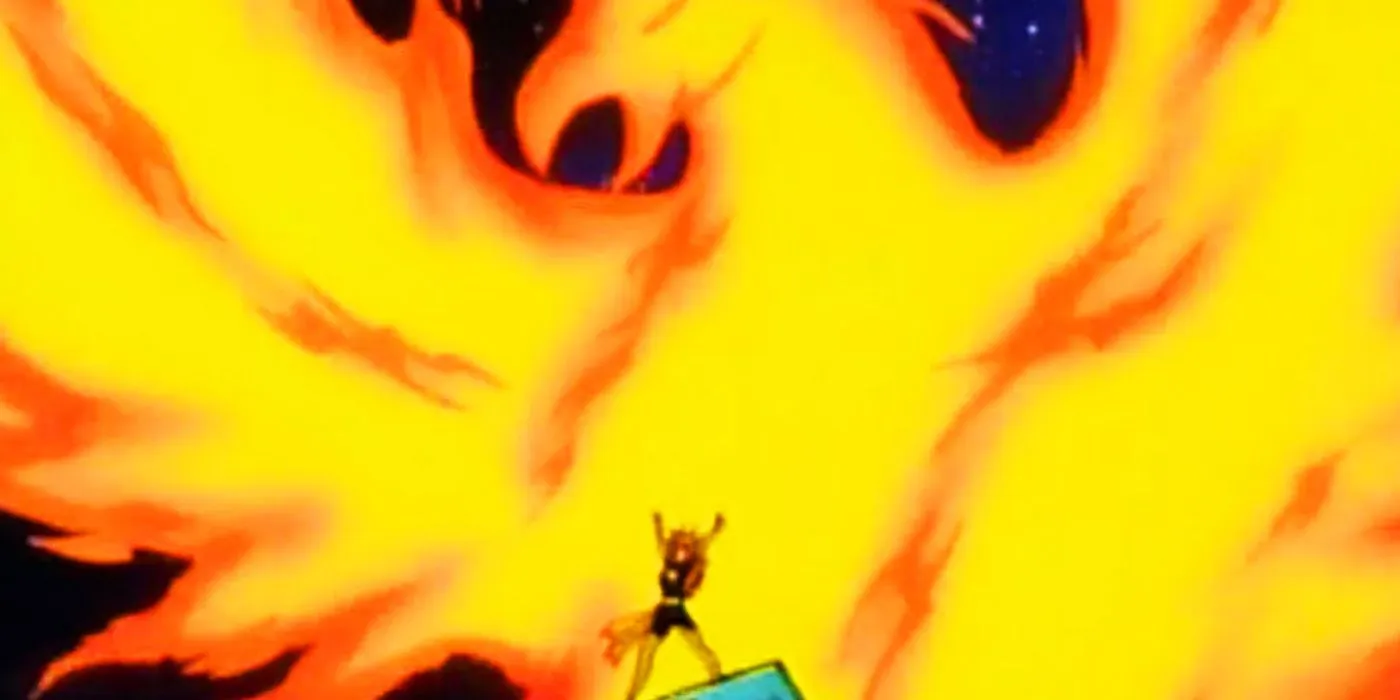
The Phoenix Force represents the quintessential essence of creation within the Marvel Universe, manifesting across space-time. It has hosted various beings throughout its existence, primarily aiming to safeguard young civilizations or to cleanse stagnant worlds. The most notable host, Jean Grey, is revealed in Rise of the Powers of X #5 (Kieron Gillen and Luciano Vecchio) to be the creator of the Force itself. Currently, the Force is in its most potent form, residing within Jean, who is seemingly elevated beyond the concept of divinity itself, as articulated in Phoenix #5 (Stephanie Phillips and Alessandro Miracolo) when she stated, “a god has limits.”
2. Dominions
Godlike Artificial Intelligences That Transcend Time and Space
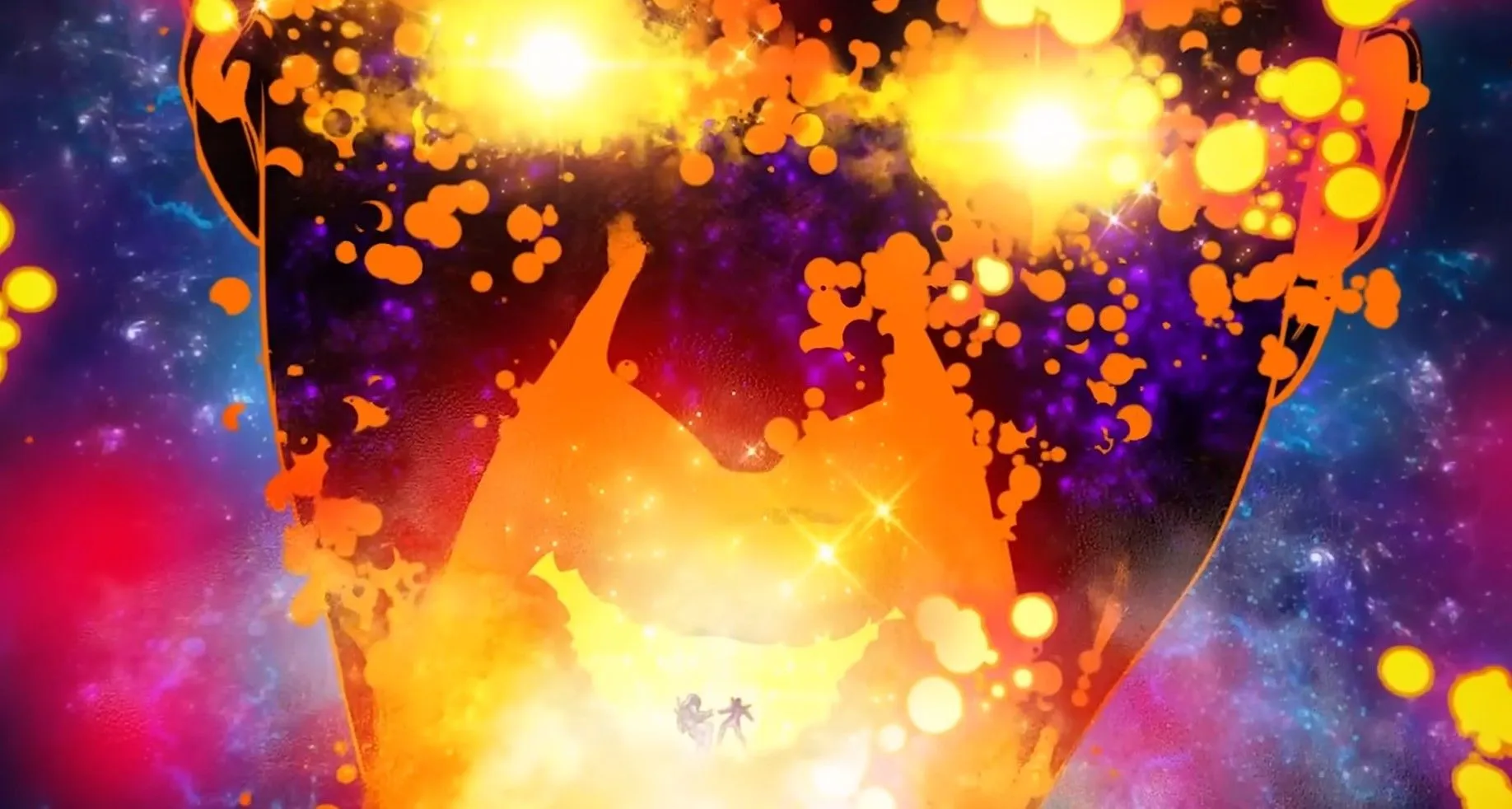
In Marvel, Dominions are advanced entities that have gained god-like powers, existing beyond time and space. These beings often emerge from the evolution of artificial intelligences into godlike forms. One of the most notorious Dominions is Enigma, the culmination of Nathaniel Essex’s efforts to ascend to godhood by creating four clones. Enigma was ultimately defeated following the resurgence of the Phoenix Force in its full capacity. These beings, while non-hostile to many forms of life, could theoretically eradicate the Phoenix if they joined forces.
1. The Christian God
Justifying Hate Through Faith
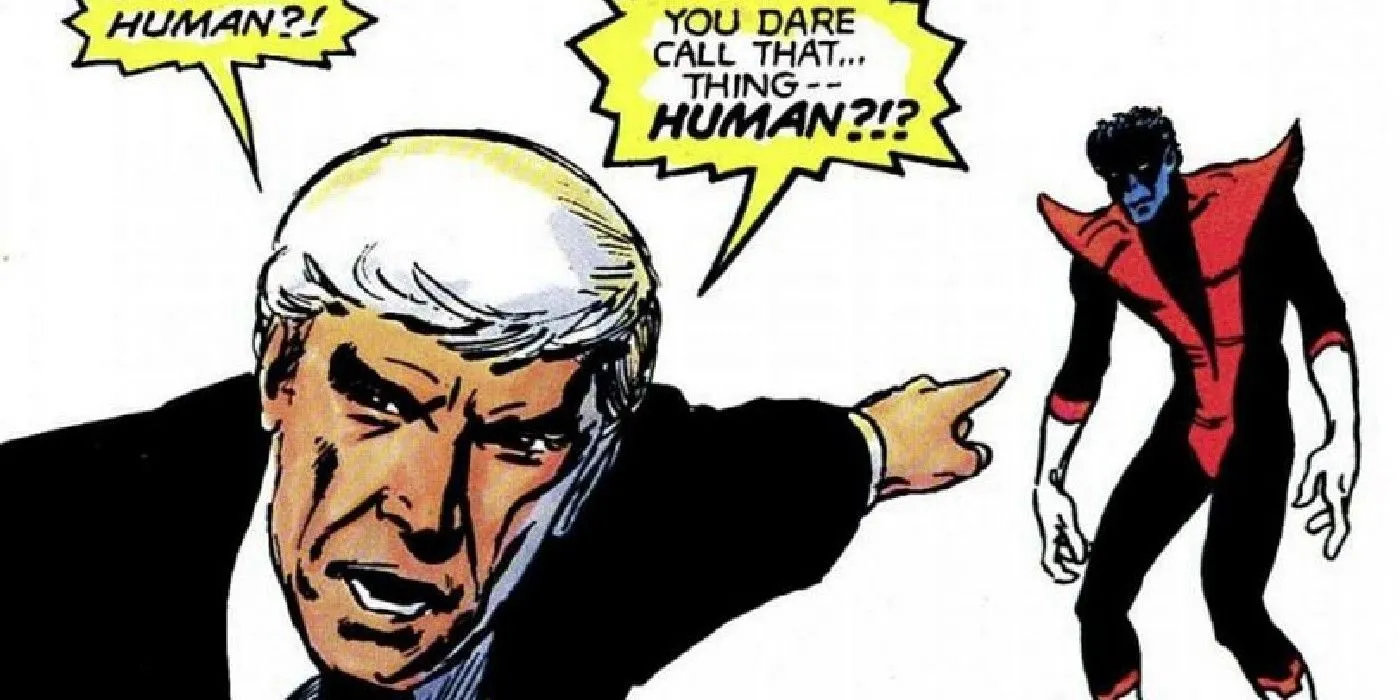
While the Christian God may not feature centrally in Marvel narratives, His presence looms, akin to the One-Above-All, the supreme architect of the multiverse. Faith in this figure propels many characters, both hero and villain alike. Religious zealots like Reverend William Stryker and the Purifiers use their twisted interpretations of faith to validate their hatred for mutants. Conversely, heroes like Nightcrawler embody a deep religious conviction, inspiring the creation of the Spark—a mutant philosophy aimed at establishing a moral framework for immortals. Interestingly, ancient mutants are revealed to have shaped belief systems involving angels and demons, suggesting a complex intersection of faith and mutant existence.
These are the 15 most powerful gods in X-Men lore—ranging from an Asgardian deity who fell for a mutant to an omnipotent creator who serves as justification for the oppression of mutants. We encourage readers to share in the comments your thoughts on which deities should be included or ranked differently in our list.
